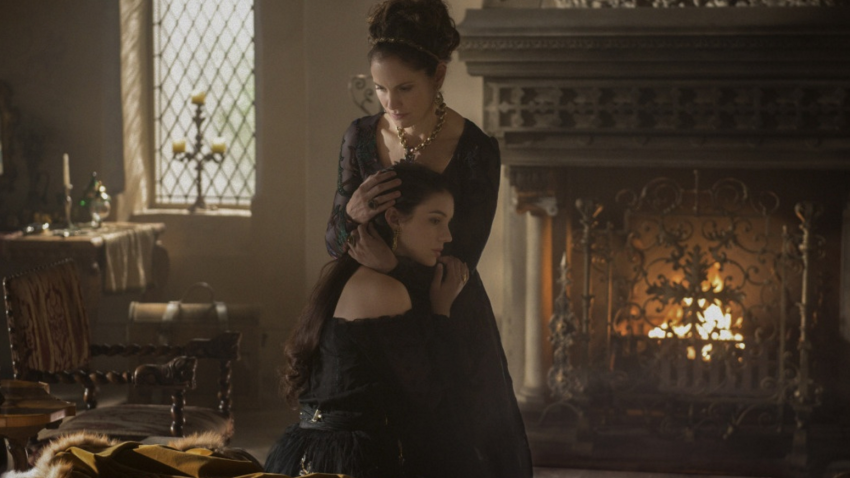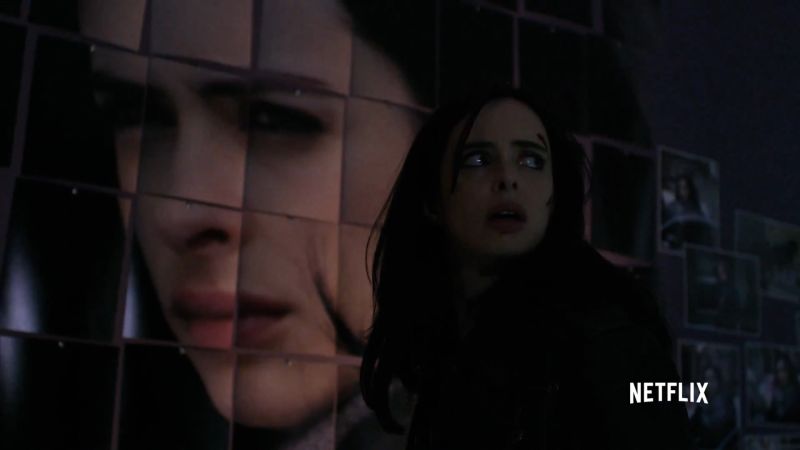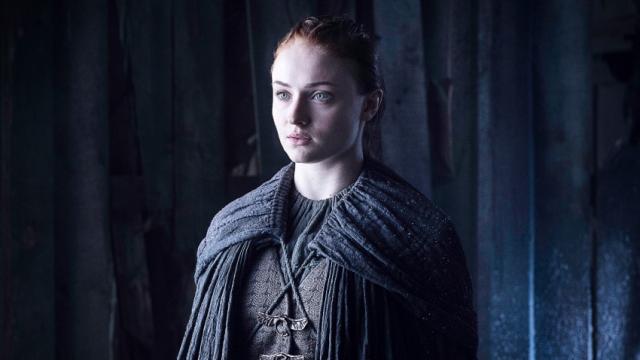An executive from the UK distributor of Game of Thrones came out this week and said concerns about sexual violence against women on the show are “nonsense.” Excuse me while I roll my eyes to Moon Bay.
Photo Credit: HBO
In a discussion panel at the Edinburgh International Television Festival, Gary Davey, managing director of content at Sky, was asked about the scene where Sansa Stark was raped on her wedding night by Ramsay Bolton. That scene angered a lot of fans, who argued that not only was it not part of her original story arc, but it was yet another example of sexual violence being used as character motivation.
In response, he basically said it was a stupid argument because men get hurt too.
“I think that’s nonsense,” he said. “There is also a lot of violence to men. For anybody who’s watched the show it can be a very violent show. I don’t think the violence against women is particularly highlighted. It is just part of the story. The rape happens, it’s part of the story, it was in the books.”
I do want to start off by saying there’s a big difference between some guy getting arrowed in the face and a woman being stripped and sexually assaulted. It seems short-sighted to conflate the situations as two sides of the same coin, “men get killed, women get raped.” Especially given Theon Greyjoy’s sexual assault and humiliation at the hands of Ramsay, which is all but blanketed over by that statement.
However, that’s not the issue I want to discuss. This is about how sexual violence is portrayed on television, and why it’s so prevalent in the first place. This is something Davey himself acknowledged during his panel earlier this week.
“I think it is bit silly, it is not like sex and violence on TV is a new idea,” he said. “In fact, I’m not sure it’s any worse or any better than it’s ever been.”
Now, I’m not the type of person who’s going to condemn every example of sexual violence on a television show, against both women and men. However, I am going to say that many shows don’t do it responsibly.
Sexuality is very hard to put on television or film, with US censors often coming down more strongly against sexual content and nudity than violence. Sometimes, shows circumvent the censors by combining sex and violence in a way that allows them to do both.

Photo Credit: CW
It sounds counter-intuitive, but it’s worked. It 2014, the CW “period drama” Reign made headlines for a scene where the female protagonist Mary was brutally raped, even though earlier that year censors blocked a scene showing Mary having consensual sex with her husband.
Law and Order: SVU has been producing episodes on sexual violence for 17 seasons, including one episode where someone rapes women to spread HIV, another where a porn-addicted boy sticks stuff up his arse and a third where a serial rapist targets women based on their ovulation cycles. All of those examples are disgusting, inhumane, and, sadly, some of the easier ways to get sex on primetime.
There are many, many downsides to this. It creates a correlation between sex and violence, where one happens as the result of the other. It turns sex into a negative experience, associating it with pain and suffering. It also becomes a crutch for writers when they don’t know how to give their characters a conflict, primarily their female characters.
Above all, it’s disrespectful to actual victims of sexual violence. According to RAINN, one in six women, and one in 33 men, are victims of attempted or completed rape. Their experiences shouldn’t be stylised or “gorified” for the camera, but rather given the time and respect they deserve.

Photo Credit: Netflix
There are examples where sexual violence is used in a constructive way on television. Jessica Jones carries strong themes of sexual violence, trauma, and PTSD, but it focuses on the victims and their stories, not the acts themselves. It also gives equal time and respect to both Kilgrave’s female and male victims, without separating the severity of their experiences based on their genders.
Does Game of Thrones deserve the worst criticism for its depiction of sexual violence? In my opinion, no. It isn’t beyond criticism by any means, but I think it sometimes gets more flack than it deserves. And I also think you can criticise the scenes while also recognising the show’s existing strengths.
I’m not a fan of the Sansa rape scene, but I didn’t entirely hate it either. I’m more ambivalent. I see it as something that would actually happen between Sansa and Ramsay at that point in their relationship, but I also see the unnecessary harm it does to her character and motivation. It’s definitely a subjective response on my part, and I understand and respect those who are more upset about the scene than I might be.
Luckily, we are seeing improvements in regards to how TV networks respond to sexual violence, Sky executive aside. The aforementioned Reign episode led to CW issuing a sort-of moratorium on sexual violence in their shows, which looks like it’s still in effect. Plus, Game of Thrones was way lighter on the sexual violence in Season 6, with Sansa, Cersei and Daenerys taking over the Seven Kingdoms by the season finale.
Although, it must be pointed out, all three of those women are victims of rape, and none of their experiences were “nonsense.”
